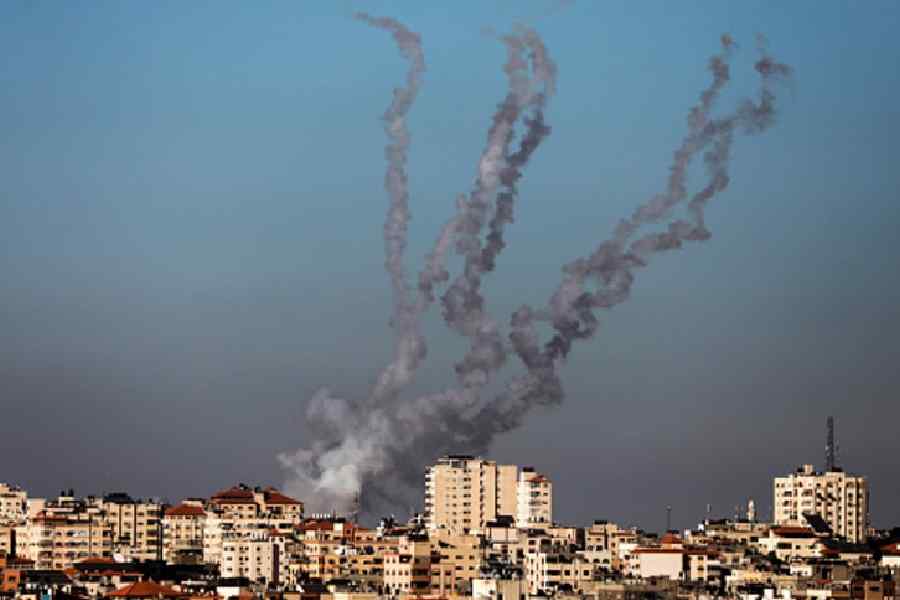Earlier this week, the United Nations secretary-general, António Guterres, stated that Hamas’ attack on southern Israel on October 7 did not take place in a vacuum: Mr Guterres was referring to Israel’s occupation, blockade and discriminatory policies against Palestinians over decades. Predictably, Israel accused the UN boss of trying to justify the attack when he had, in fact, condemned it. Israel has also stopped visas for UN representatives. That is unfortunate, both because regions in conflict need greater UN presence and because Mr Guterres was right. There can be no condoning the horrific, armed attack on civilians by Hamas. But to ignore the context in which the assault took place is to lay the grounds for those conditions to be repeated. Since 1967, Israel has had complete control over all of traditional Palestine, including the West Bank that it has occupied physically for 56 years and the Gaza Strip, which it occupied until 2005, and has since managed through a blockade.
In Gaza, that siege has crippled the economy and made it hard for ordinary people to travel or access medical services. Meanwhile, in the West Bank, an ever-increasing number of illegal Israeli settlements are encircling Palestinian communities, cutting them off from each other, and bludgeoning hopes of a contiguous future Palestinian State. Settlers and Israeli forces routinely attack Palestinians violently when they resist the illegal takeover of their land. A series of apartheid-like laws discriminate against and humiliate Palestinians every day. What must also be noted is that all of this has been enabled by Western hypocrisy, with leaders from the United States of America and Europe speaking of a two-state solution and the need to respect international law while permitting Israel to dismantle any prospect of a Palestinian State coexisting alongside it and shielding it from criticism over its violations of UN resolutions through vetoes. As a result, not just the two-state solution but also the West’s credibility lies in tatters.
There is enough blame to go around with regard to the Israel-Palestine conflict; no side is entirely innocent. Key elements of the Palestinian movement for statehood have become partisan players in the larger schisms of the Middle East. The ties between Hamas and Iran mean that countries like Saudi Arabia, Egypt and Jordan view it with suspicion. The rise of Hamas and the increasingly religious overtones of what has historically been a national liberation struggle have, in the meantime, coincided with the weakening of the secular Palestinian Authority led by Fatah, the Palestine Liberation Organization’s political arm. Arab nations, through a series of formal and informal deals with Israel, have also contributed to the weakening of the legitimacy of the PA and the cementing of the reputation of Hamas as the resistance force ordinary Palestinians can turn to. Only regional and global powers can force Israel and Hamas to break this cycle of violence. They must start by valuing Palestinian and Israeli lives equally.










